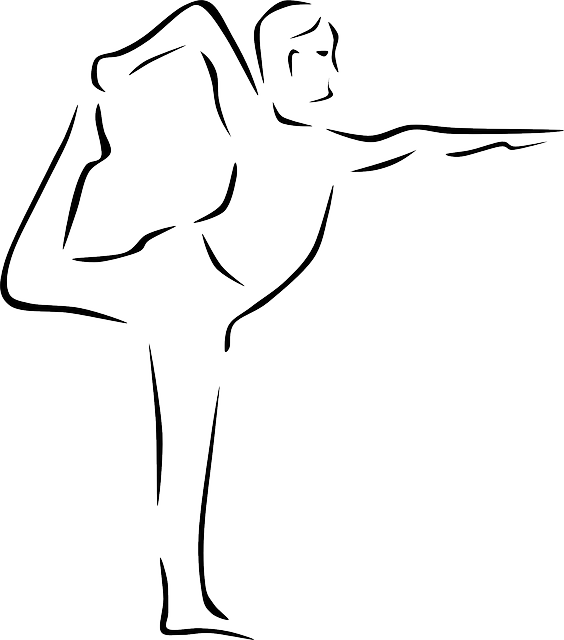Sleep is a critical component for athletes' recovery, playing a central role in muscle repair, hormone regulation, and immune function. Quality rest synchronizes physiological systems, enhancing nutrient utilization and energy restoration. Balanced nutrition supporting muscle growth, paired with optimized sleep timing and environment, boosts athletic performance. Integrating sleep, nutrition, and fitness practices through data-driven adjustments facilitates faster recovery, improved skill acquisition, and overall well-being.
Enhance your fitness journey with the power of sleep optimization! This article explores strategic approaches to boost recovery, seamlessly integrating nutrition and fitness practices. Discover how quality rest impacts athletic performance and overall well-being. We’ll guide you through understanding sleep’s crucial role, crafting a nutrient-rich diet for optimal rest, preparing a sleep-friendly environment, and tracking progress for personalized results. Unlock your full potential by mastering these science-backed strategies.
- Understanding Sleep's Role in Fitness Recovery
- Nutrition: Fueling Your Body for Optimal Rest
- Creating a Sleep-Conducive Environment
- Tracking and Adjusting for Personalized Results
Understanding Sleep's Role in Fitness Recovery

Sleep plays a pivotal role in optimizing fitness recovery, often overlooked yet crucial for athletes and fitness enthusiasts alike. During rest, the body initiates complex processes that facilitate muscle repair, hormone regulation, and immune function—all essential components of improved physical performance and enhanced nutrition absorption. Adequate sleep allows for proper synchronization of physiological systems, promoting efficient nutrient utilization and energy restoration.
In the realm of nutrition and fitness integration, understanding sleep’s impact is game-changing. Quality rest supports the body’s natural healing mechanisms, ensuring that the hard work put into training translates directly into performance gains. For instance, deep sleep stages trigger the release of growth hormone, crucial for muscle recovery and tissue repair, while also reinforcing memory consolidation, which can aid in learning new skills or strategies to optimize fitness routines.
Nutrition: Fueling Your Body for Optimal Rest

Nutrition plays a pivotal role in sleep optimization, which is integral to enhancing fitness recovery. The integration of proper nutrition and fitness routines is a powerful strategy to ensure your body is prepared for rest and repair. Consuming a balanced diet that includes lean proteins, complex carbohydrates, healthy fats, and ample fruits and vegetables supports muscle growth and repair during sleep. These macronutrients provide the building blocks for a robust recovery process, enabling athletes to push their performance limits while minimizing potential injuries.
Additionally, timing your meals appropriately before bedtime can significantly impact sleep quality. Eating a light, nutritious snack a few hours before sleep can help maintain stable blood sugar levels, promoting better rest. Avoiding heavy or sugary foods close to bedtime, however, is crucial as these can disrupt sleep due to digestive processes and subsequent energy spikes. By understanding the nutrition-sleep relationship, fitness enthusiasts can optimize their dietary habits to fuel their bodies for optimal rest, ultimately enhancing athletic performance and overall well-being.
Creating a Sleep-Conducive Environment

Creating a sleep-conducive environment is an often overlooked yet powerful tool in the pursuit of optimal fitness recovery. Beyond ensuring a consistent sleep schedule, the space where you rest plays a significant role. A dark, quiet, and cool room promotes better sleep quality. Consider investing in blackout curtains to block light and keep your room at a comfortable temperature between 60-67°F (15-19°C). Additionally, minimizing noise can greatly enhance sleep; earplugs or a white noise machine can be useful additions.
Integrating proper nutrition into your bedtime routine is another key strategy. Eating a light, protein-rich snack before bed, such as Greek yogurt or a small handful of nuts, can aid in muscle repair and growth, a process that continues during sleep. Avoid heavy meals and stimulants like caffeine close to bedtime, as they can disrupt your sleep cycle. Instead, opt for calming foods that support a healthy rest, aligning your nutrition and fitness efforts for optimal recovery.
Tracking and Adjusting for Personalized Results

In the pursuit of optimal fitness recovery, integrating sleep optimization with nutrition and fitness practices is key. Tracking sleep patterns and quality allows individuals to tailor their routines for personalized results. By monitoring rest, heart rate variability, and sleep stages using wearable technology or applications, one can identify trends and make data-driven adjustments. For instance, recognizing patterns like delayed sleep phases or fragmented sleep can guide improvements in bedtime routines, ambient conditions, and nutrition timing.
This integration of sleep optimization with nutrition and fitness promotes a holistic approach. Consuming a balanced diet rich in recovery-promoting nutrients, such as lean proteins, complex carbohydrates, and healthy fats, supports muscular repair and overall well-being. Concurrently, optimizing sleep ensures the body can effectively utilize these nutrients, enhancing muscle recovery and performance for the next training session. This personalized approach, grounded in data and guided by a nutrition and fitness integration strategy, ultimately facilitates faster recovery times and improved athletic performance.
Sleep optimization is a key component of achieving peak fitness and recovery. By understanding the vital role sleep plays in muscle repair, hormone regulation, and cognitive function, we can implement strategies such as nutrition and fitness integration, creating a sleep-conducive environment, and tracking personal progress to enhance our post-workout recovery. Incorporating these practices into your routine ensures that your body is adequately rested and primed for the next training session, ultimately leading to improved performance and overall well-being.
